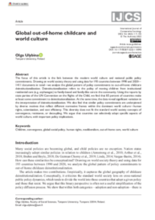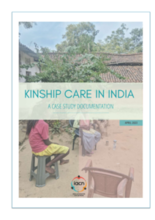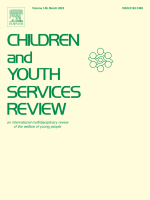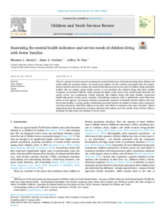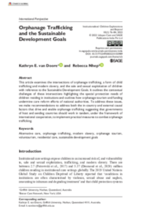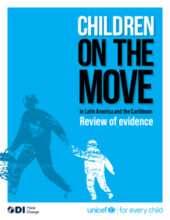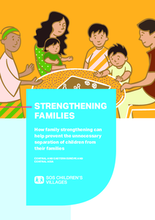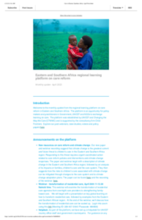Displaying 691 - 700 of 10391
The focus of this article is the link between the modern world culture and national public policy commitments. Drawing on world society theory and using data for 193 countries between 1990 and 2020—1411 documents in total—the authors analyze the global pattern of policy commitments to out-of-home childcare deinstitutionalization.
This IACN report outlines the importance of families for the emotional, physical, and cognitive growth of children. The authors discuss that all efforts should be made to provide family-based care to children without parental care, and institutionalisation should be a measure of last resort for the optimum development of children. The report draws on the experiences of eight families in kinship care arrangements and the children placed with them.
This Children and Youth Services Review study performed a systematic review of research on training programs aiming the fostering of emotional and mental health in residential youth care. A systematic search was conducted in nine digital databases and other sources (websites, relevant journals, reference lists of included articles and relevant reviews), for publications from 1980 to 2021.
This study utilized a large sample of treatment-seeking children across Ontario to compare children living with a foster family to non-foster children, across a number of psychosocial, care needs, and demographic variables.
This article examines the intersections of orphanage trafficking, a form of child trafficking and modern slavery, and the sale and sexual exploitation of children with reference to the Sustainable Development Goals. It outlines the contextual challenges of these intersections highlighting the special protection needs of children residing in institutions and outlines how orphanage tourism and funding undermine care reform efforts of national authorities.
This report aims to synthesize recent evidence concerning the experiences and needs of children affected by human mobility in Latin America and the Caribbean, and on how far programmes and policies are meeting those needs. It is motivated by a desire on the part of the United Nations Children’s Fund Latin America and Caribbean Regional Office (UNICEF LACRO) to promote proven responses to human mobility that genuinely respond to the needs of children and families: in their communities of origin, in transit, as they settle in new countries, or if they return to their countries of origin.
This document makes the case for the importance of investing in family strengthening in countries across Central and Eastern Europe and Central Asia. It has a particular focus on support for families so that any unnecessary separation of children from their families and placement in alternative care can be prevented.
This is the monthly update of the Eastern and Southern Africa Regional Learning Platform published in April 2023.
ការសិកសាស្រវជ្រវនះត្រូវធ្វើឡើងជាផ្នកមួយនគម្រងស្រវជ្រវពហុប្រទស ដលមានច្រើន ដំណាក់កាល ដលត្រូវបានរចនាឡើង ដើមបីពង្រឹងការកំណត់អត្តសញ្ញណ ការផ្ដន្ទទោស និងការទប់ស្កត់ បទល្មើសជួញដូរកុមារក្នុងមណ្ឌលកុមារកំព្រ។ការសិកសាស្រវជ្រវនះគឺជាដំណាក់កាលទីពីរនដំណាក់កាល ទាំ

